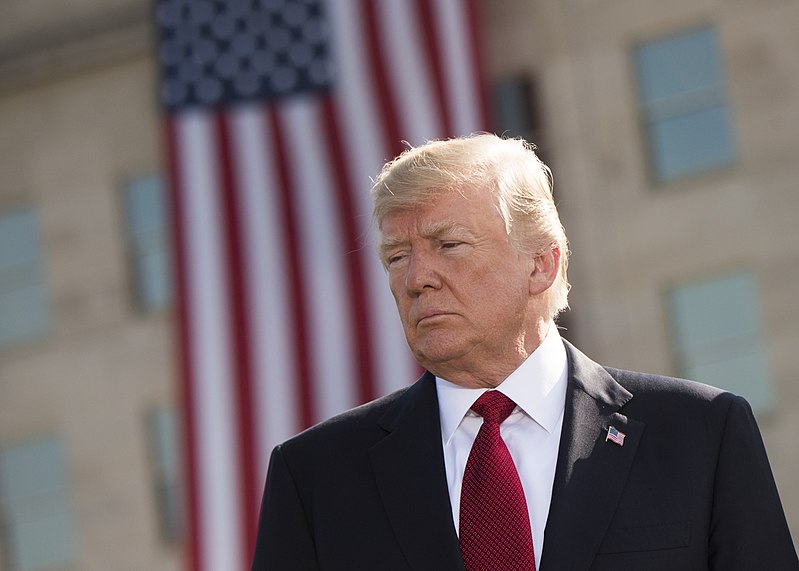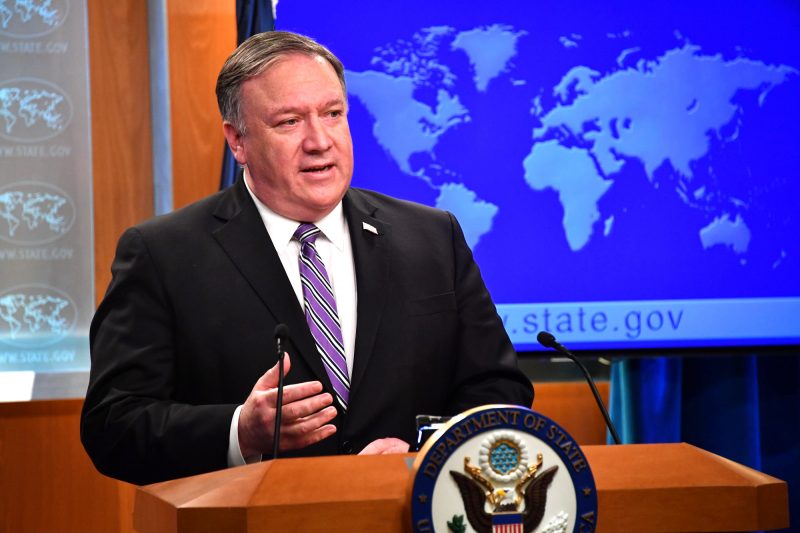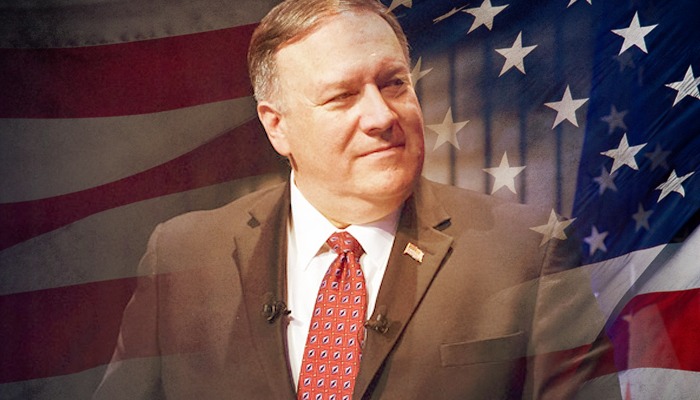While less than a month ago everyone was concerned about the possibility of war breaking out in the Persian Gulf, American policy toward Iran now seems to have shifted once again.
While in Japan, Trump stated that the US has no plans to bring down the government in Iran, no plans for war and is even ready to talk with the current Iranian leaders. Trump said he thinks the current leadership could lead the country forward and that his only concern is preventing Iran from producing a nuclear weapon.

Wikimedia commons
While in the United Arab Emirates, US National Security Adviser John Bolton pinned the blame for earlier attacks on four oil tankers on that Iranians… but also made clear that the US has no plan for a war against the country.
If these statements were not surprising enough, the hawkish US Secretary of State Mike Pompeo suddenly dismissed the twelve conditions for negotiations he had formerly insisted on, stating that the US was ready to sit down at the negotiating table with Iran without preconditions.
All three American officials stated that they were ready to do exactly what Iran has been demanding for decades. Going by these statements, one might almost believe that there really has been a change in Washington’s attitude toward Iran…
The Iranians, however, know better.
The Iranians have known for many years that they are not able to trust the Americans who don’t abide by any of the agreements they make with Iran.
Whenever someone brings up negotiations between Iran and the US, the JCPOA (Joint Cooperation Plan of Action) is the first thing that comes in mind, which Trump unilaterally and arbitrarily pulled out of after becoming president. As President Rouhani noted a couple of months ago, the Iranians and Americans have had many talks over the past forty years and have reached agreements about 19 times, both public and in secret… but the Americans have not abided by a single one of their promises.
Since President Rouhani has always held high ranking political positions over the past four decades in Iran and has participated personally in most of these negotiations, he likely knows better than anyone what the Americans are really up to.
On the same note, while Mohammad Javad Zarif, Ali Akbar Salehi, Kamal Kharazi, Ali Akbar Velayati and Sadegh Ghotbzadeh are indeed connected by having served as post-revolutionary Iranian foreign ministers, all of these men are also connected by having received their education in the US.
If you consider what all these Iranian foreign ministers after the Islamic revolution have in common, it is easy to understand how much Iranian foreign policy orients itself toward America.
Meanwhile, Pompeo couldn’t even differentiate between Iraq and Iran for years and is totally clueless about the differences between the people.

Wikimedia commons
The same is true of a surprisingly high number of American high-ranking officials and politicians.
If the Americans would have adhered to the nuclear deal and implemented their commitments, the moderate groups in favor of negotiation and better relations with the US would have grown stronger in Iran– but after the US quit the JCPOA and implemented new sanctions, no politician would dare to risk his future betting on the success of new negotiations with the US.
The Iranians believe that the reason Americans changed their policy toward Iran is that all their previous plans and efforts at pressuring Tehran have failed due to strong Iranian resistance, and now the Americans have taken up a new strategy.
The Iranians believe that Americans want to say to the world “you all see that we are seeking peace and negotiations, but the Iranians don’t want it! So please help us to pressure Iran and force them to the negotiation table.”
The truth is that anyone familiar with the US’ history knows their intentions are anything but sincere. Though Washington’s rhetoric has changed, their attitude about Iran and the Iranian people hasn’t.
For the first time, all sides of the political spectrum in Iran, even most of the opposition groups, are united in their belief that new negotiations would be meaningless.
Conciliatory words aside, Washington’s sanctions remain in place, and if the Iranian side agrees to sit at the negotiation table with the Americans given the current situation, it could break their domestic unity.
What President Trump really wants is to play the same game he played with North Korea. He wants to sit down for talks with Iranians and take pictures with the president to show the American voters that he has fulfilled his election promises and has forced Iran to renegotiate the nuclear deal, but won’t actually offer anything tangible.
Of course, the Iranians know this very well, which is why they insist that the US first take concrete action rather than simply offering talks. Iran has a lot of experience with Trump and his team, and know that anything they offer and any position they take is liable to change completely within a 24 hour period.
What Iran insists on is that the US re-adopt the JCPOA, implement its obligations and remove sanctions before new negotiations take place.
Of course, if Trump returns to the nuclear deal this would be seen as a huge failure for him, but he still has the option of fulfilling the US’ commitments and removing sanctions without officially returning to Obama’s deal.
If this occurs, we might not even see any official talks between Iran and the US, but this won’t mean that their negotiations of some kind haven’t taken place.
We can conclude that one of the problems preventing new talks is strong mistrust between Iran and the US, necessitating that the Iranians receive some tangible guarantees from Washington before they reach a new deal in order to make sure that the next American president won’t simply renege on the deal once again.
However, the last time a deal was made, five large European countries helped guaranteed the deal would be carried out and the UN national security council approved it as a resolution, and the US quit it in the blink of an eye all the same. It remains to be seen if Washington will be able to put a more acceptable guarantee on the table or not.
In any event, it is clear that the Iranians won’t take any more checks from the Americans: this time it’s cash only.

















Leave a Reply